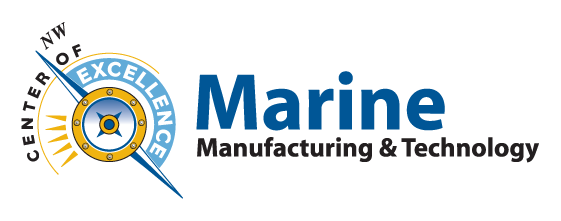
Advisory Committee
The Advisory Committee assists the Center of Excellence (COE) in accomplishing the objectives of the Center. These may include:
Review and assess the effectiveness of COE projects, initiatives and activities.
Recommend occupational performance standards and criteria for marine programming.
Identify emerging labor market needs, trends, and opportunities.
Provide resources for COE and partner activities, including subject matter expertise, equipment, supplies, materials, and financial resources, as appropriate.
Assist with employee recruitment, orientation, and placement.
Assist in career opportunities for youth through industry internships, and career exploration.
Identify job skill requirements/gaps, including skill standards, and soft skills.
Advisory Committee members contribute their:
Commitment and willingness to work with the COE and partners toward the common goal of maintaining and growing a highly skilled and technically proficient marine labor force.
Ideas about education and training needs related to the marine trades.
Knowledge, skills and expertise in the industry.
Guidance, advice, and time will advance the work of the COE.
Energy will ensure that the activities of the COE will reflect industry needs and concerns, regionally and statewide.
Advisory Committee Members
Bill Monette, CFSD 401 (Cape Flattery)
Courtney Robinson, Renaissance Marine
Emily Reiter, Saltchuk Marine
Jim Gilan, Retired Boeing
Jim Johnson, Eat on the Wild Side d/b/a Crawford Nautical Training
Kimberly Hetrick, Washington Student Achievement Council (WSAC)
Marianne Brudwick, All American Marine
Marlene Casey, Thunderjet Boats (Brunswick)
Mike Beemer, Skagit Valley College Marine Technology
Rosario Reyes, Latino Education Training Institute (LETI)
Sarah Scherer, Transportation Institute
Vanessa Cooper, Lummi Nation
The Advisory Board Benefits Washington State:
Instructional Programs
Programs will be based on current job needs, with a focus on specific knowledge, competencies, and aptitudes.
Students
Their transition from school to work will be smoother due to strong ties with business, industry and labor.
Employment Community
The employment community will have a trained labor pool upon which to build an economically sustainable business model.
Schools
Community and technical colleges will receive increased community support for preparing graduates to perform effectively on the job.
Join the Advisory Board
The Advisory Board meets three times per year: fall, winter and spring. However, members may meet more frequently if working on specific projects. Meetings will be kept to a maximum of two hours.
Advisory Board members are provided with a copy of the Center of Excellence annual work plan, are included at the Pacific Maritime Expo and annual Maritime Forecast Breakfast, and have access to professional development, networking opportunities, and online/virtual learning through webinars, seminars, and other events.





